Find Help
More Items From Ergsy search
-
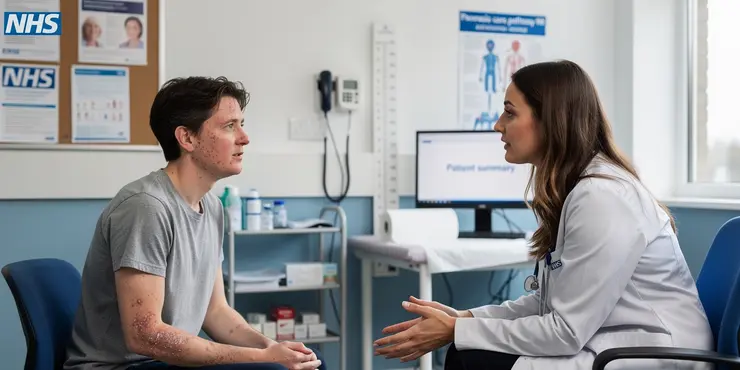
What is psoriasis?
Relevance: 100%
-
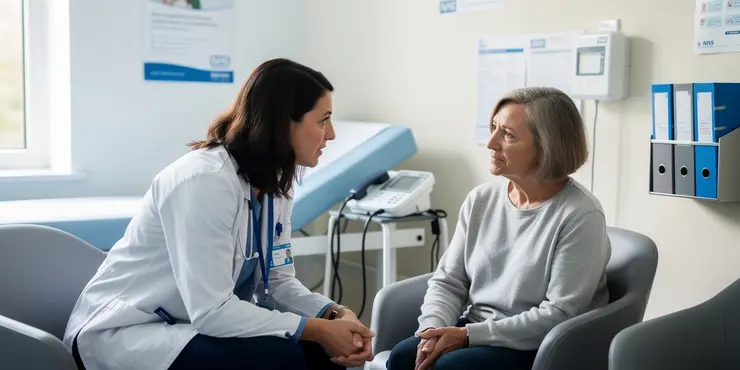
Psoriasis | NHS
Relevance: 99%
-
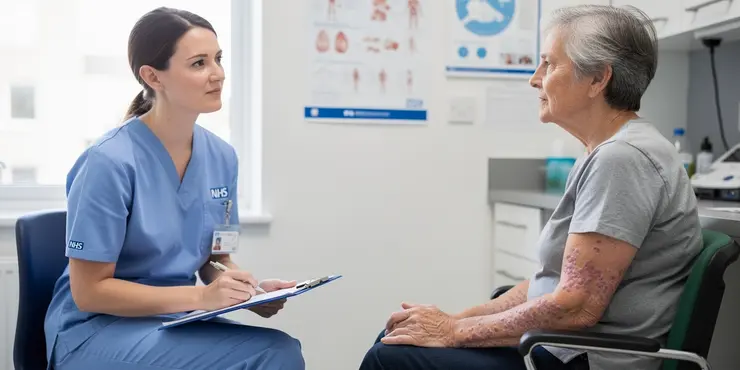
Is there a cure for psoriasis?
Relevance: 99%
-
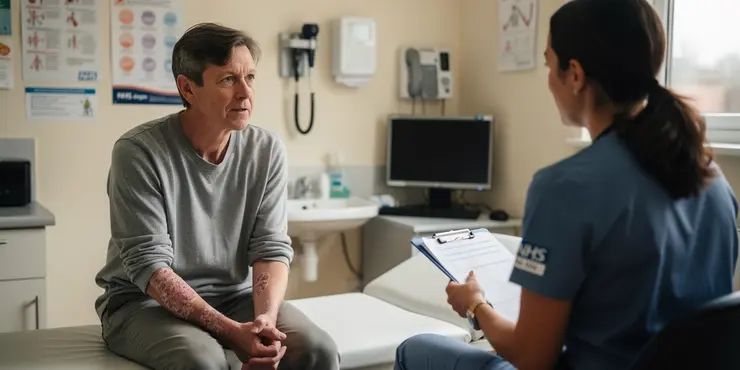
What causes psoriasis?
Relevance: 96%
-
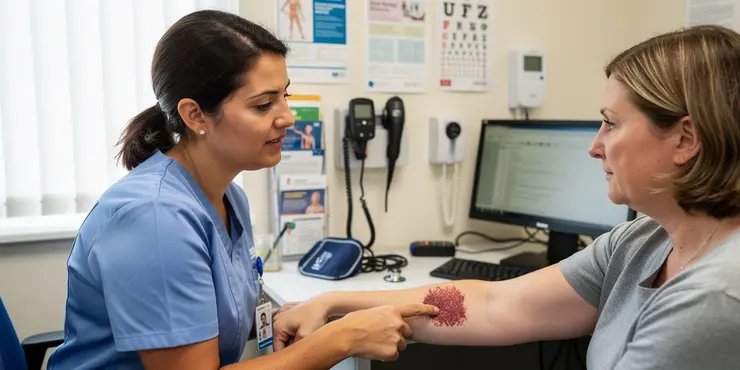
How is psoriasis diagnosed?
Relevance: 95%
-
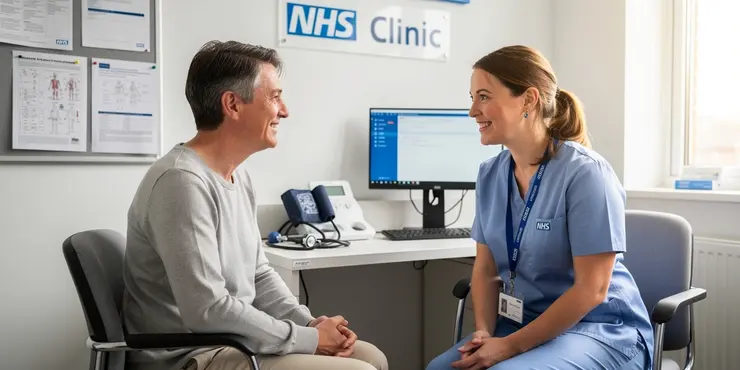
How to treat psoriasis
Relevance: 94%
-

Are there home remedies for psoriasis?
Relevance: 93%
-
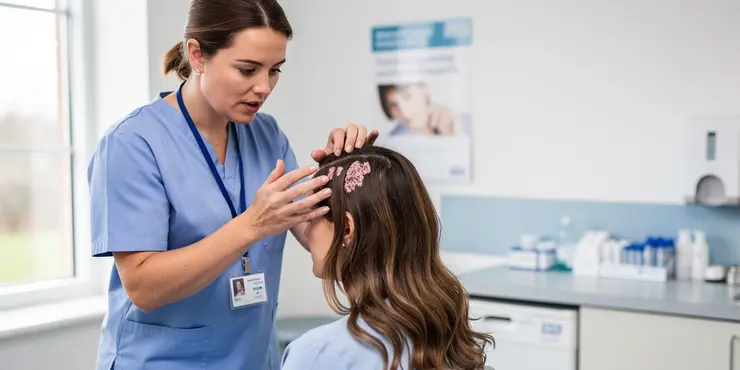
Treating scalp psoriasis
Relevance: 93%
-
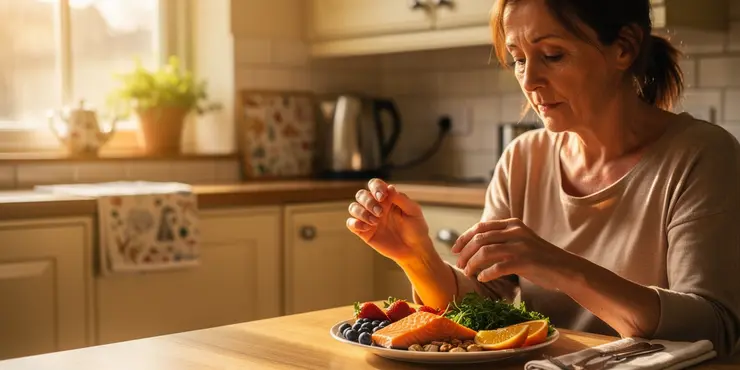
Can diet affect psoriasis?
Relevance: 92%
-
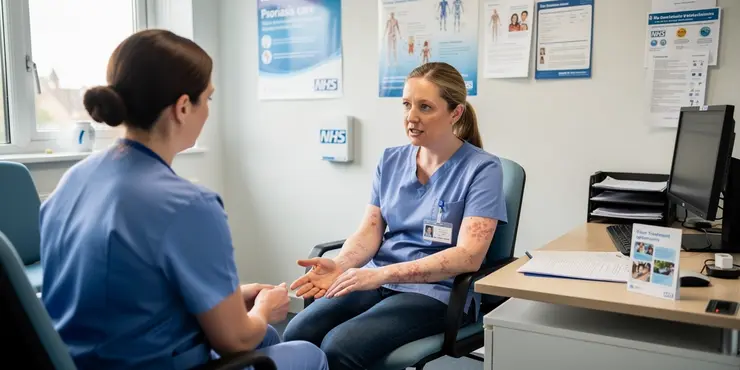
What are systemic medications for psoriasis?
Relevance: 90%
-
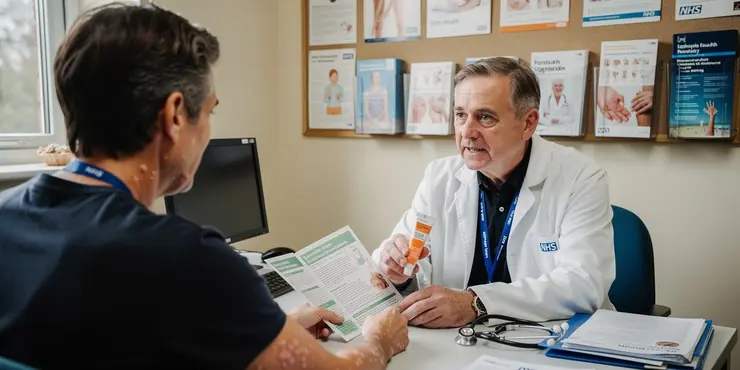
What are topical treatments for psoriasis?
Relevance: 90%
-
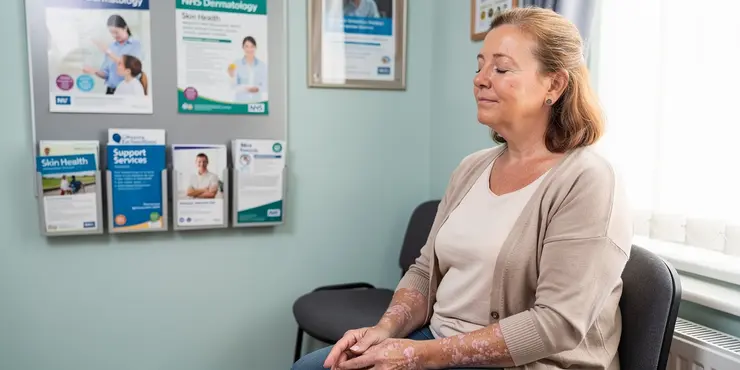
Can stress trigger psoriasis flare-ups?
Relevance: 88%
-
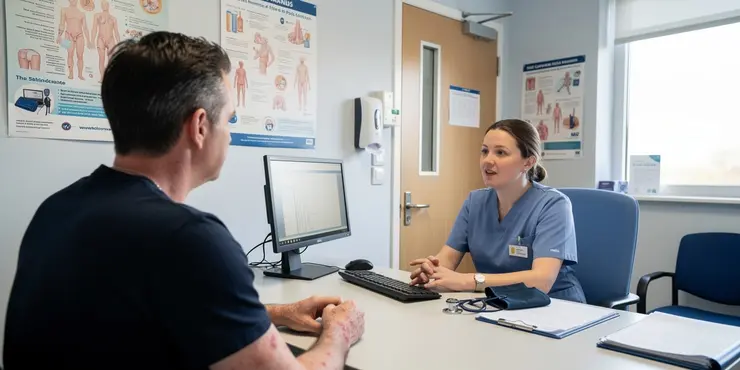
When should I see a doctor for psoriasis?
Relevance: 87%
-
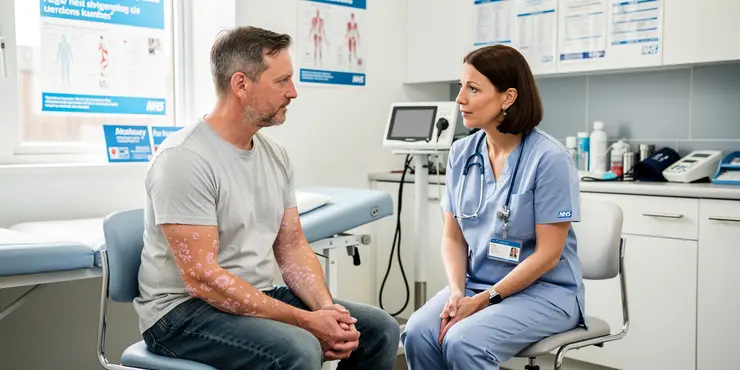
What treatment options are available for psoriasis?
Relevance: 86%
-
What role do lifestyle changes play in managing psoriasis?
Relevance: 83%
-
Is it true that sunbeds can help treat skin conditions like psoriasis?
Relevance: 76%
-
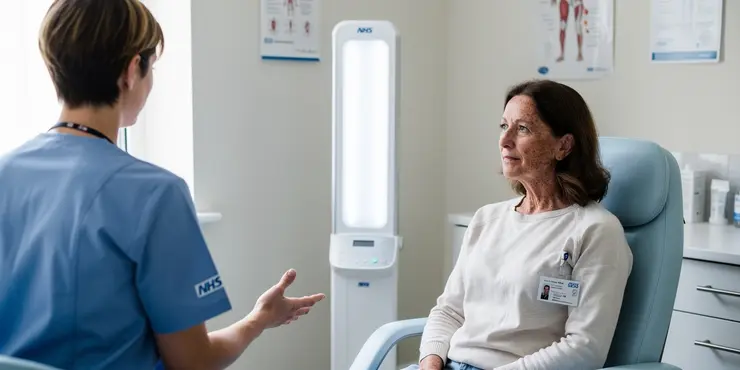
Can phototherapy help with psoriasis?
Relevance: 66%
-
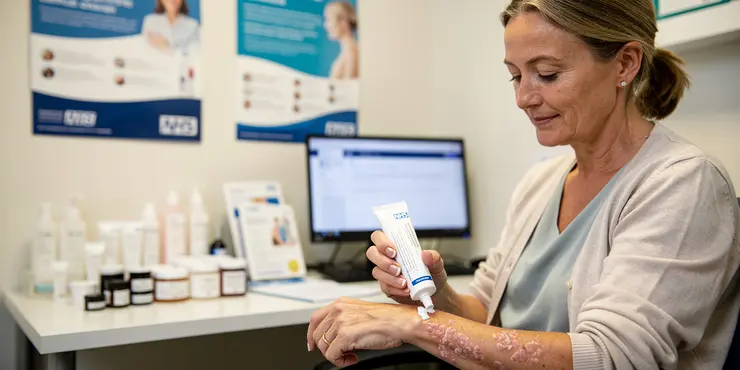
Can over-the-counter treatments help with psoriasis?
Relevance: 62%
-
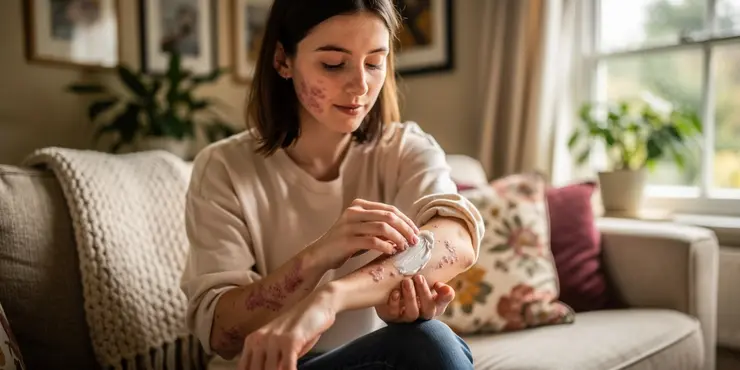
How important is it to keep the skin moisturised with psoriasis?
Relevance: 60%
-
Are there any health benefits to tanning on sunbeds?
Relevance: 21%
-
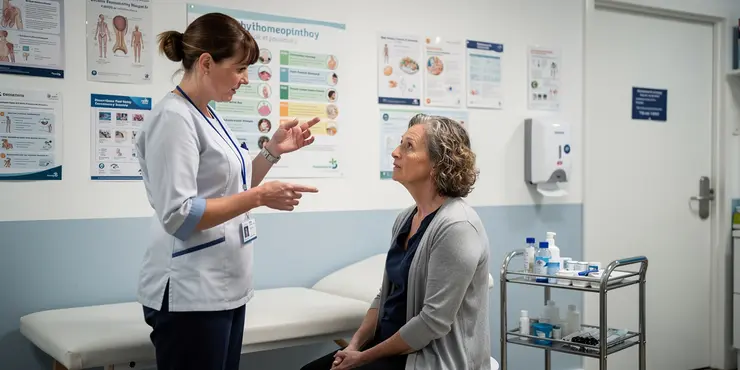
What are some common conditions treated with homeopathy?
Relevance: 20%
-
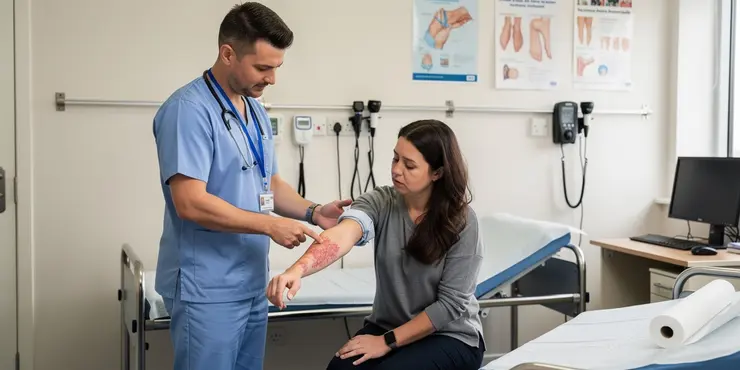
How can eczema be diagnosed?
Relevance: 19%
-
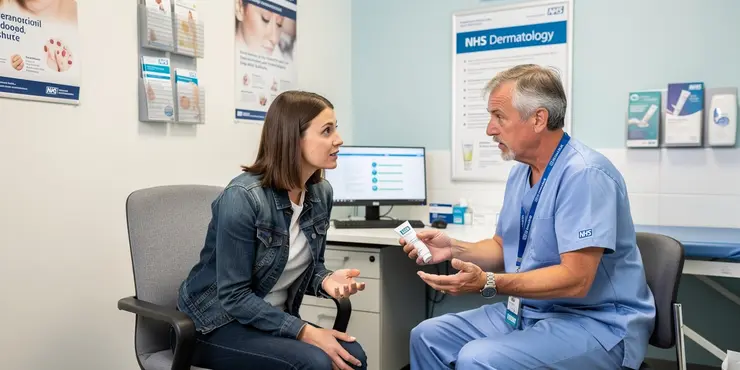
Steroid cream see Topical corticosteroids
Relevance: 19%
-
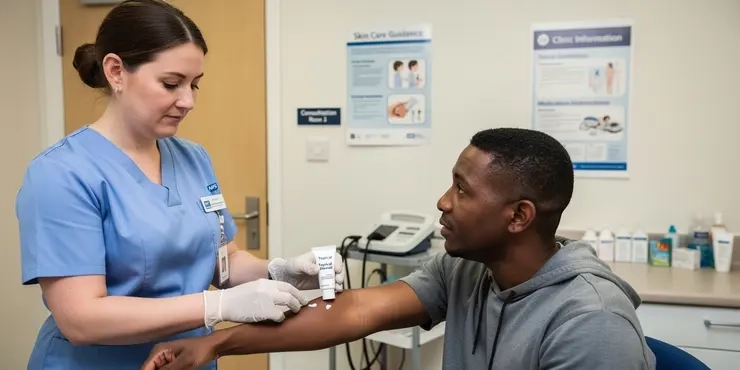
How to use topical steroids
Relevance: 18%
-
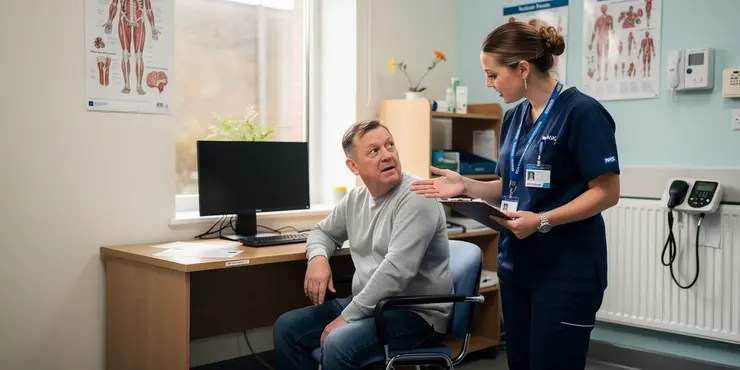
What are the potential benefits of CBD?
Relevance: 13%
-
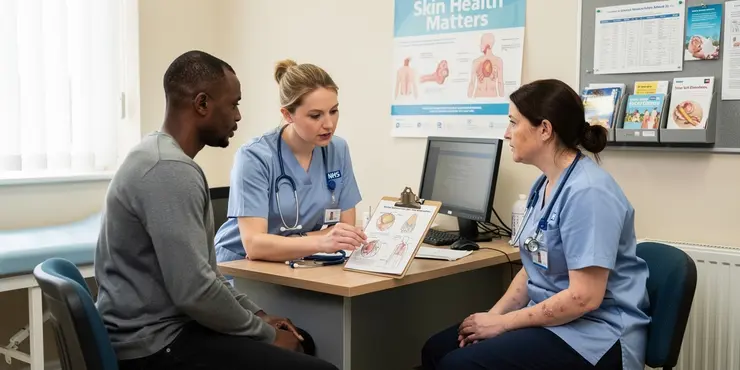
Can scabies cause complications?
Relevance: 13%
-
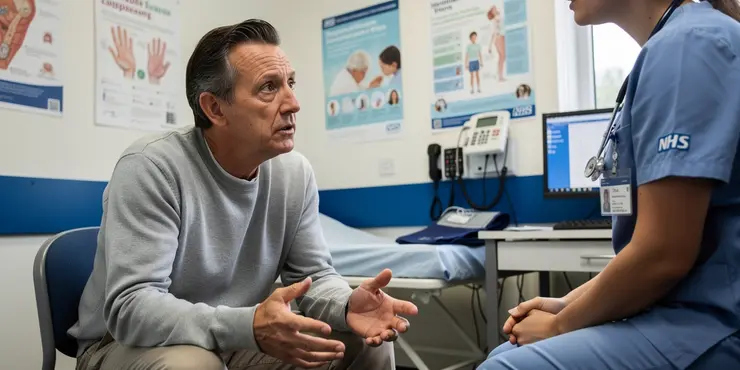
What are the uses of cannabis extract?
Relevance: 12%
-
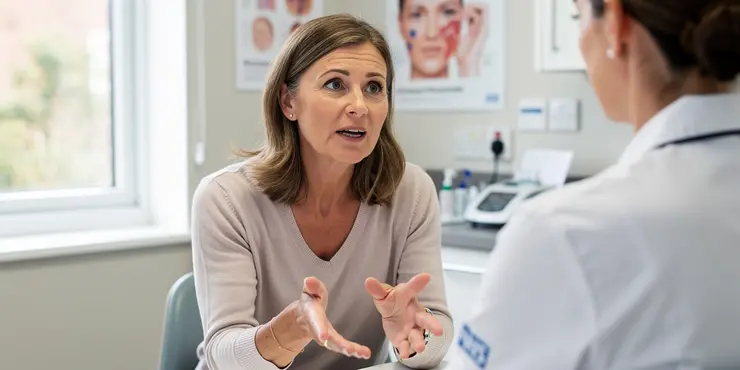
Can anyone get Botox treatments?
Relevance: 12%
-
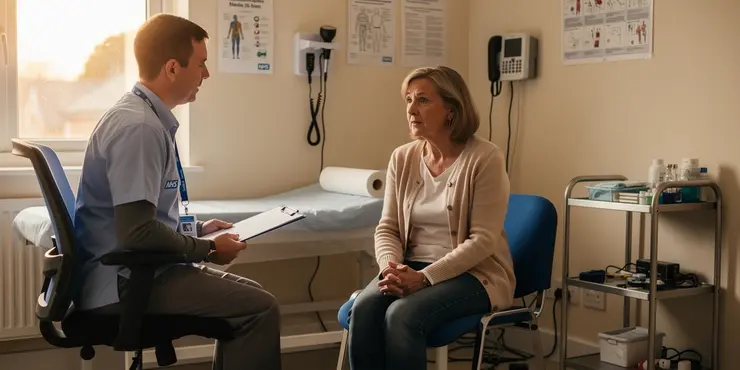
Does stress contribute to nettle rash?
Relevance: 7%
-
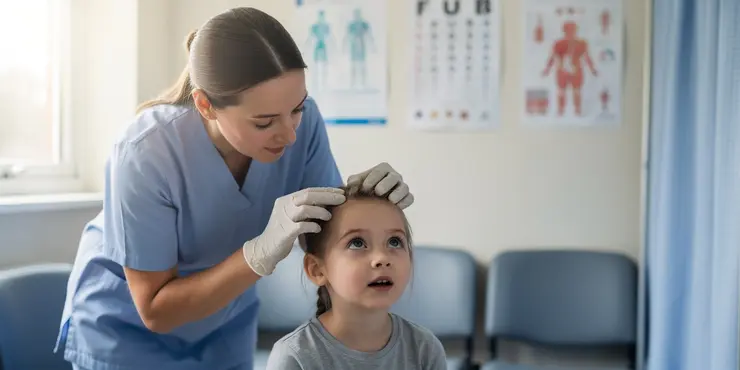
How can you differentiate nits from dandruff?
Relevance: 7%
-
Can health-related anxiety cause physical symptoms?
Relevance: 7%
-
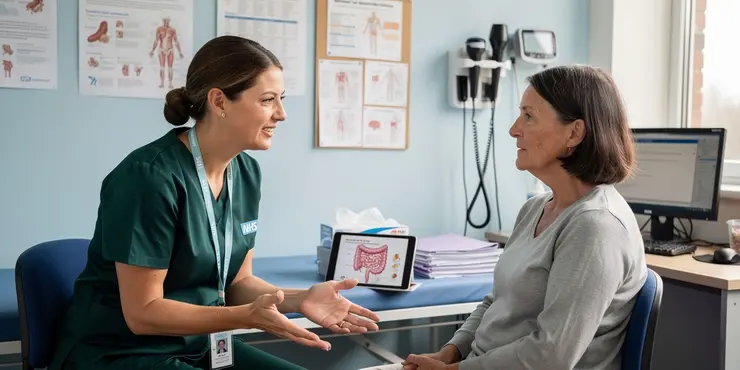
What are some signs of poor gut health?
Relevance: 6%
-
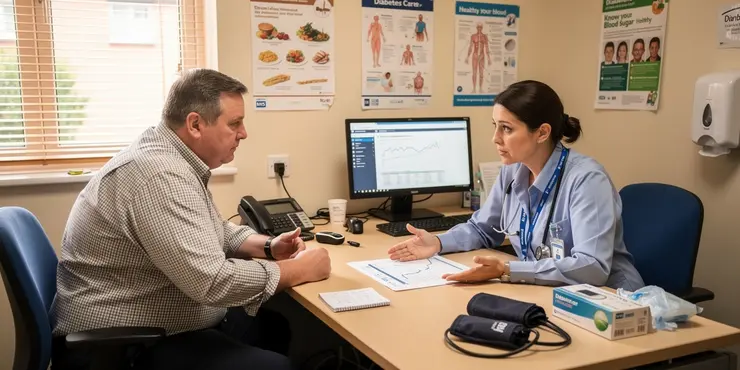
Who is at risk for flesh-eating disease?
Relevance: 6%
-
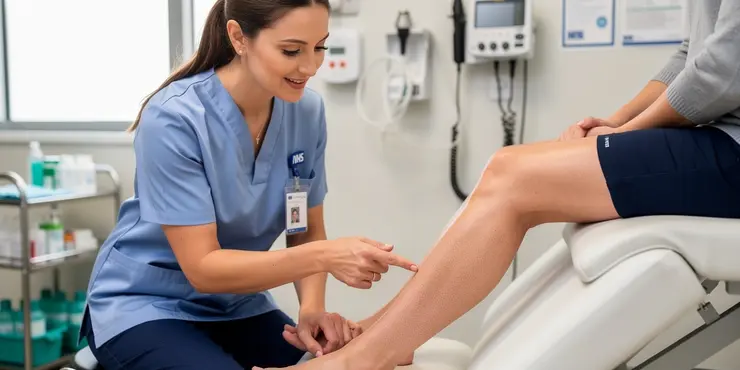
What to do about red legs
Relevance: 6%
-
Are there any health benefits to tanning on sunbeds?
Relevance: 6%
-
Can using sunbeds boost my immune system?
Relevance: 6%
-
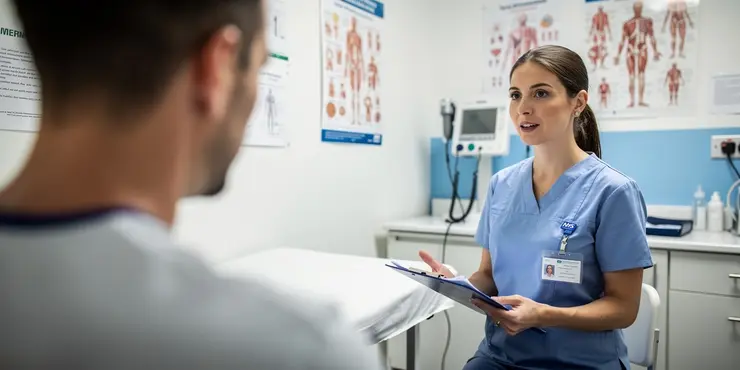
Are there health benefits to using cannabis extract?
Relevance: 6%
Psoriasis | NHS
What is Psoriasis?
Psoriasis is a chronic skin condition causing red, flaky, crusty patches of skin covered with silvery scales. These patches typically appear on the elbows, knees, scalp, and lower back, but they can appear anywhere on the body. Psoriasis affects around 2% of people in the UK and can start at any age, but most often develops in adults under 35 years old. Unlike some skin conditions, psoriasis is not contagious, meaning it cannot be spread from person to person.
Causes of Psoriasis
The exact cause of psoriasis is not fully understood, but it is believed to be related to a problem with the immune system. The immune system starts attacking healthy skin cells by mistake, causing the rapid production of new skin cells. These new skin cells build up on the surface of the skin, forming the characteristic patches. Genetic factors are also believed to play a role, as psoriasis often runs in families. Certain triggers such as stress, skin injuries, infections, and certain medications can also exacerbate the condition.
Symptoms of Psoriasis
Common symptoms of psoriasis include patches of red, inflamed skin, and thick, silvery-white scales. These patches can be itchy or sore, and in severe cases, they can crack and bleed. Other symptoms may include dry, cracked skin that may bleed, thickened or ridged nails, and swollen and stiff joints. Symptoms can vary from mild to severe and may go through periods of flaring up and subsiding.
Treatment Options
While there's no cure for psoriasis, various treatments can help manage the symptoms. These include topical treatments such as corticosteroid creams, vitamin D analogues, and topical retinoids. Phototherapy, which involves exposing the skin to ultraviolet light, may also be used. For more severe cases, systemic treatments like oral or injected medications that affect the entire body may be prescribed. These include biologics, which target specific parts of the immune system. It’s essential to work with a healthcare provider to determine the most appropriate treatment plan.
Living with Psoriasis
Living with psoriasis can be challenging, but support is available. The NHS provides various resources for patients, including information on managing the condition and access to specialist care. Support groups and charities, such as Psoriasis Association, offer support and advice. Lifestyle changes, such as maintaining a healthy diet, reducing stress, and avoiding known triggers, can also help manage symptoms. Regular follow-ups with a healthcare provider are crucial in monitoring the condition and adjusting treatments as needed.
Psoriasis | NHS
What is Psoriasis?
Psoriasis is a skin problem that makes red and flaky patches. These patches have silver scales on top. You can often see them on elbows, knees, scalp, and lower back. But they can be anywhere on the body. About 2 out of every 100 people in the UK have psoriasis. It can start at any age, but often starts before people turn 35. Psoriasis is not something you can catch from someone else.
Causes of Psoriasis
We are not exactly sure why psoriasis happens. It is linked to the immune system. The immune system attacks healthy skin by mistake, making new skin cells too quickly. These extra skin cells pile up and form patches. Psoriasis can run in families, meaning if someone in your family has it, you might get it too. Stress, skin injuries, infections, and some medicines can make psoriasis worse.
Symptoms of Psoriasis
If you have psoriasis, you may see red and inflamed skin with silver-white scales. These patches can itch or hurt. Sometimes, the skin can crack and bleed. Other signs are thick nails or nails with ridges, and swollen joints. Symptoms can be mild or very bad. They can flare up or calm down over time.
Treatment Options
There is no cure for psoriasis, but treatments can help. Creams or ointments you put on your skin, like steroid creams or vitamin creams, can be used. Light therapy, using UV light, can help too. In more serious cases, medicines you take by mouth or injection can be used. These medicines help your whole body. It's important to talk with a doctor to find the best treatment for you.
Living with Psoriasis
Living with psoriasis can be tough, but help is out there. The NHS has lots of resources to help manage it. You can also join support groups like the Psoriasis Association for advice. Changes like eating healthy, lowering stress, and staying away from triggers can help. Make sure to keep seeing your doctor to check your condition and adjust treatments.
Frequently Asked Questions
What is psoriasis?
Psoriasis is a skin condition that causes red, flaky, crusty patches of skin covered with silvery scales. These patches are usually found on the elbows, knees, scalp, and lower back, but they can appear anywhere on the body.
What are the symptoms of psoriasis?
Symptoms of psoriasis include red patches of skin covered with thick, silvery-white scales, dry and cracked skin that may bleed, itching, burning, or soreness, thickened or ridged nails, and swollen or stiff joints.
What causes psoriasis?
The exact cause of psoriasis is unknown, but it involves the immune system. It is thought to be an autoimmune condition where the body's immune system attacks healthy skin cells by mistake. Genetics and environmental factors can also play a role.
Is psoriasis contagious?
No, psoriasis is not contagious. You cannot catch it from someone who has the condition or pass it on to others.
How is psoriasis diagnosed?
Psoriasis is usually diagnosed by a GP or dermatologist by examining the affected skin. In some cases, a small sample of skin (biopsy) may be taken to examine under a microscope to help confirm the diagnosis.
What treatments are available for psoriasis?
Treatment options for psoriasis include topical treatments such as corticosteroids and vitamin D analogues, phototherapy, systemic treatments, and biologic drugs. The treatment used depends on the severity and type of psoriasis.
Can lifestyle changes help manage psoriasis?
Yes, lifestyle changes such as maintaining a healthy weight, quitting smoking, reducing alcohol intake, managing stress, and following a balanced diet can help manage psoriasis and reduce flare-ups.
Can psoriasis affect other parts of the body?
Yes, psoriasis can affect other parts of the body, including the nails and joints, leading to conditions like nail psoriasis and psoriatic arthritis.
Is there a cure for psoriasis?
There is currently no cure for psoriasis, but there are many treatments available that can help manage the symptoms and keep the condition under control.
Can children get psoriasis?
Yes, children can get psoriasis. While it can develop at any age, it is less common in children compared to adults.
What triggers psoriasis flare-ups?
Common triggers for psoriasis flare-ups include stress, skin injuries, infections, certain medications, smoking, heavy alcohol consumption, and changes in weather.
Can diet affect psoriasis?
Diet can affect psoriasis. Maintaining a balanced diet, rich in fruits, vegetables, and lean proteins, and avoiding foods that may trigger inflammation, can help manage the symptoms of psoriasis.
How does phototherapy work for psoriasis?
Phototherapy for psoriasis involves exposing the skin to ultraviolet light. This can reduce the rate of skin cell production and help improve the symptoms. It is usually administered in a controlled medical setting.
Are there any complications associated with psoriasis?
Complications of psoriasis can include psoriatic arthritis, increased risk of developing conditions such as cardiovascular disease, high blood pressure, diabetes, and depression. Regular medical check-ups are important to monitor for these potential complications.
What should I do if I think I have psoriasis?
If you think you have psoriasis, you should see your GP for a diagnosis. Early diagnosis and treatment can help manage the symptoms and prevent the condition from worsening.
What is psoriasis?
Psoriasis is a skin problem that makes red, itchy spots on your skin. Sometimes the spots look like they have white or silver flakes. It can happen on your elbows, knees, or anywhere on your body. It is not something you can catch from someone else.
To help make reading easier, you can:
- Use a ruler or your finger to follow the words.
- Ask someone to read with you.
- Try reading out loud.
Psoriasis is a skin problem. It makes the skin red, flaky, and crusty. The skin also gets silvery scales. These spots often show up on your elbows, knees, head, and lower back. But they can appear anywhere on your body.
Here are some tips to help you understand:
- Look at pictures of psoriasis to see what it looks like.
- Ask a grown-up for help if you have questions.
What happens when you have psoriasis?
People with psoriasis might have red skin patches with thick white scales. Their skin can be dry and crack, which might bleed. They might feel itchy, have a burning feeling, or their skin might hurt. Their nails can look thick or bumpy. Sometimes, their joints might swell or feel stiff.
To help understand better, you can use pictures or watch videos about psoriasis. Talking to a doctor or nurse can also help.
Why do people get psoriasis?
Nobody knows exactly what causes psoriasis. It happens because of the body’s immune system. The immune system gets confused and attacks healthy skin by mistake. It can run in families, and things around us can affect it too.
Can you catch psoriasis from someone else?
No, you cannot catch psoriasis from another person. It is not spreadable like a cold or the flu.
Psoriasis is a skin condition that makes skin cells grow too fast. This causes red, itchy patches on the skin.
If you have questions about psoriasis, talk to a doctor or look for information online from places you trust. You can also write down questions to ask at your next doctor visit.
No, you cannot catch psoriasis from someone else. You also can't give it to anyone. It's not something you can pass on.
How do doctors know if someone has psoriasis?
A doctor or skin specialist can tell if you have psoriasis by looking at your skin. Sometimes, they might need to take a tiny piece of skin to look at it more closely with a microscope. This helps them be sure.
If you're having trouble, you can ask someone to go with you to the doctor or write down any questions you want to ask. You can also look at pictures of psoriasis online to understand better.
What can help if you have psoriasis?
Psoriasis is a skin problem that makes your skin red and itchy.
Here are some things that can help:
- Creams and Ointments: You can put special creams on your skin to feel better.
- Light Therapy: A doctor can use special lights to help your skin.
- Medicine: Some pills or shots can help make the redness and itchiness go away.
It's a good idea to talk to a doctor. They can tell you what will work best for you.
If you find it hard to read, you can ask someone to read it to you. You can also use audio books or apps that read out loud.
If a person has psoriasis, there are different ways to help them feel better. Some people use creams that go on the skin, like special steroid or vitamin D creams. There is also a light treatment called phototherapy. Sometimes, doctors give medicine that works inside the body. There are also special medicines called biologic drugs. The doctor will choose the best treatment based on how bad the psoriasis is and what type it is.
Can changing how you live help with psoriasis?
Living a healthy life can help with psoriasis. Psoriasis is a skin problem that can make your skin red, itchy, and scaly. Here are some simple ways to feel better:
- Eat Healthy Foods: Lots of fruits and veggies can help. They are good for your skin.
- Stay Active: Moving your body like walking or swimming can help you feel good.
- Sleep Well: Try to sleep 8 hours every night to feel rested.
- Don't Smoke: Smoking can make psoriasis worse. Try not to be around smoke.
- Relax: Stress can make psoriasis flare. Try deep breathing or listening to music you like.
Ask for help if you need it. Talking to a doctor is also a good idea.
Yes, making some changes in how you live can help with psoriasis. Here are some things you can do:
- Keep a healthy weight. It's good for your skin.
- Stop smoking. Smoking can make psoriasis worse.
- Drink less alcohol. It's better for your skin.
- Manage stress. Feeling calm can help your skin.
- Eat healthy foods. A balanced diet is good for you.
All these things can help make your skin better and have fewer bad days.
Use tools like reminders or apps to help keep track of these habits. Getting support from friends or family can also help a lot!
Can psoriasis affect other parts of the body?
Psoriasis is a skin problem. It makes your skin red and scaly. This can happen on your elbows and knees. But it can also affect other parts of your body.
Psoriasis can show up on your scalp. It might also be on your hands, feet, and back.
If you have psoriasis, it is a good idea to talk to a doctor. They can help you feel better.
Try using tools like a picture book or a voice recorder to help you understand more.
Yes, psoriasis can affect more than just your skin. It can also affect your nails and joints. This can cause problems like nail psoriasis and psoriatic arthritis.
Using tools like picture cards or speaking with a helper can make understanding easier.
Can psoriasis be cured?
Psoriasis is a skin problem. It makes your skin red and itchy. There is no cure yet. But, you can make it better with creams and medicine.
Tips to help:
- Ask your doctor for the best treatment.
- Use moisturizer on your skin to help with dryness.
- Try not to scratch your skin.
There is no cure for psoriasis, but there are many ways to help feel better and control it.
Can children get psoriasis?
Yes, children can get psoriasis. Psoriasis is a skin condition. It can make the skin red, itchy, and flaky.
If you think your child has psoriasis, it is good to see a doctor. A doctor can help. They can give medicine or cream to help the skin feel better.
Using a simple calendar can help you track your child's skin condition and treatment. Coloring books can also be a fun way for children to relax and feel better.
Yes, kids can get psoriasis. Psoriasis is a skin problem. It can start at any age, but it is less common in kids than adults.
If you want to understand more about psoriasis, you can look at pictures or use apps that speak the words out loud. These tools can help make it easier to learn.
What makes psoriasis worse?
Psoriasis can get worse and cause red, itchy skin. Here are some things that can make psoriasis worse:
- Being stressed or worried.
- Getting sick, like with a cold.
- Skin injuries like cuts or sunburn.
- Very cold or dry weather.
It can help to:
- Stay calm and relax.
- Take good care of your skin.
- Wear sunscreen and stay safe in the sun.
Psoriasis can get worse because of different things. These things are:
- Feeling very stressed or worried
- Hurting your skin
- Getting sick or having an infection
- Taking some types of medicine
- Smoking cigarettes
- Drinking a lot of alcohol
- Changes in the weather
Tips that might help:
- Try to stay calm and do things that make you happy.
- Be gentle with your skin and avoid getting hurt.
- Wash your hands often to avoid infections.
- Talk to your doctor before taking new medicine.
- If you smoke, try to stop.
- Drinking less alcohol can be good for you.
- Dress warmly when it's cold and keep cool when it's hot.
Can food change psoriasis?
Psoriasis is a skin problem. It makes red, itchy patches. Doctors are not sure what causes it. Some people think that food can help. Some foods might make it better or worse.
Here are some tips:
- Eat more fruits and vegetables.
- Try to eat less sugar and fatty foods.
- Drink plenty of water.
- Keep a food diary to see if certain foods affect your skin.
Ask a doctor for advice if you have questions.
What you eat can change how psoriasis feels. Eating healthy foods like fruits, vegetables, and lean meats can help. Try not to eat foods that make your skin hurt more. This can help keep psoriasis problems smaller.
How does light therapy help with psoriasis?
Psoriasis can make your skin red, itchy, and scaly. Light therapy, also called phototherapy, can help. Here's how it works:
1. Light shines on your skin. This special light is called UVB light. It is not the same as sunlight.
2. The light slows down the fast-growing skin cells. This helps clear the skin and make it feel better.
It usually requires several treatments. Doctors can help decide how often you might need light therapy.
Tips to help:
- Ask your doctor questions if you are unsure.
- Use a calendar to track your treatment days.
- Talk to others who have used light therapy.
Phototherapy for psoriasis means using special light on the skin. This light helps slow down how fast skin cells grow. It can make the skin feel and look better. Doctors usually do this in a safe place, like a clinic or hospital.
Do people with psoriasis have any extra problems?
If you have psoriasis, you can have other health problems too. These can include:
- Sore and swollen joints, called psoriatic arthritis.
- Heart problems.
- High blood pressure.
- Diabetes (a condition where your blood sugar is too high).
- Feeling very sad or depressed.
It is important to see your doctor often. They can help check for these problems.
What to do if you think you have psoriasis
If you think you have psoriasis, here are some steps you can take:
- Talk to a doctor: A doctor can help check if you have psoriasis. They can also tell you how to take care of it.
- Write down your symptoms: Make a list of what you feel and see on your skin. This can help your doctor understand better.
- Use a mirror: Check your skin with a mirror to see if there are any red, itchy patches.
- Take pictures: You can take pictures of the spots on your skin to show them to your doctor later.
- Ask a friend or family member to help: Sometimes it's good to have someone with you who can help you explain things to the doctor.
Psoriasis is a skin condition that makes your skin itchy and red.
If you think you have psoriasis, you should go to your doctor. They can tell you if you have it. Finding out early and getting help can stop it from getting worse.
Useful Links
This website offers general information and is not a substitute for professional advice.
Always seek guidance from qualified professionals.
If you have any medical concerns or need urgent help, contact a healthcare professional or emergency services immediately.
Some of this content was generated with AI assistance. We’ve done our best to keep it accurate, helpful, and human-friendly.
- Ergsy carfully checks the information in the videos we provide here.
- Videos shown by Youtube after a video has completed, have NOT been reviewed by ERGSY.
- To view, click the arrow in centre of video.
- Most of the videos you find here will have subtitles and/or closed captions available.
- You may need to turn these on, and choose your preferred language.
- Go to the video you'd like to watch.
- If closed captions (CC) are available, settings will be visible on the bottom right of the video player.
- To turn on Captions, click settings .
- To turn off Captions, click settings again.
More Items From Ergsy search
-

What is psoriasis?
Relevance: 100%
-

Psoriasis | NHS
Relevance: 99%
-

Is there a cure for psoriasis?
Relevance: 99%
-

What causes psoriasis?
Relevance: 96%
-

How is psoriasis diagnosed?
Relevance: 95%
-

How to treat psoriasis
Relevance: 94%
-

Are there home remedies for psoriasis?
Relevance: 93%
-

Treating scalp psoriasis
Relevance: 93%
-

Can diet affect psoriasis?
Relevance: 92%
-

What are systemic medications for psoriasis?
Relevance: 90%
-

What are topical treatments for psoriasis?
Relevance: 90%
-

Can stress trigger psoriasis flare-ups?
Relevance: 88%
-

When should I see a doctor for psoriasis?
Relevance: 87%
-

What treatment options are available for psoriasis?
Relevance: 86%
-
What role do lifestyle changes play in managing psoriasis?
Relevance: 83%
-
Is it true that sunbeds can help treat skin conditions like psoriasis?
Relevance: 76%
-

Can phototherapy help with psoriasis?
Relevance: 66%
-

Can over-the-counter treatments help with psoriasis?
Relevance: 62%
-

How important is it to keep the skin moisturised with psoriasis?
Relevance: 60%
-
Are there any health benefits to tanning on sunbeds?
Relevance: 21%
-

What are some common conditions treated with homeopathy?
Relevance: 20%
-

How can eczema be diagnosed?
Relevance: 19%
-

Steroid cream see Topical corticosteroids
Relevance: 19%
-

How to use topical steroids
Relevance: 18%
-

What are the potential benefits of CBD?
Relevance: 13%
-

Can scabies cause complications?
Relevance: 13%
-

What are the uses of cannabis extract?
Relevance: 12%
-

Can anyone get Botox treatments?
Relevance: 12%
-

Does stress contribute to nettle rash?
Relevance: 7%
-

How can you differentiate nits from dandruff?
Relevance: 7%
-
Can health-related anxiety cause physical symptoms?
Relevance: 7%
-

What are some signs of poor gut health?
Relevance: 6%
-

Who is at risk for flesh-eating disease?
Relevance: 6%
-

What to do about red legs
Relevance: 6%
-
Are there any health benefits to tanning on sunbeds?
Relevance: 6%
-
Can using sunbeds boost my immune system?
Relevance: 6%
-

Are there health benefits to using cannabis extract?
Relevance: 6%


